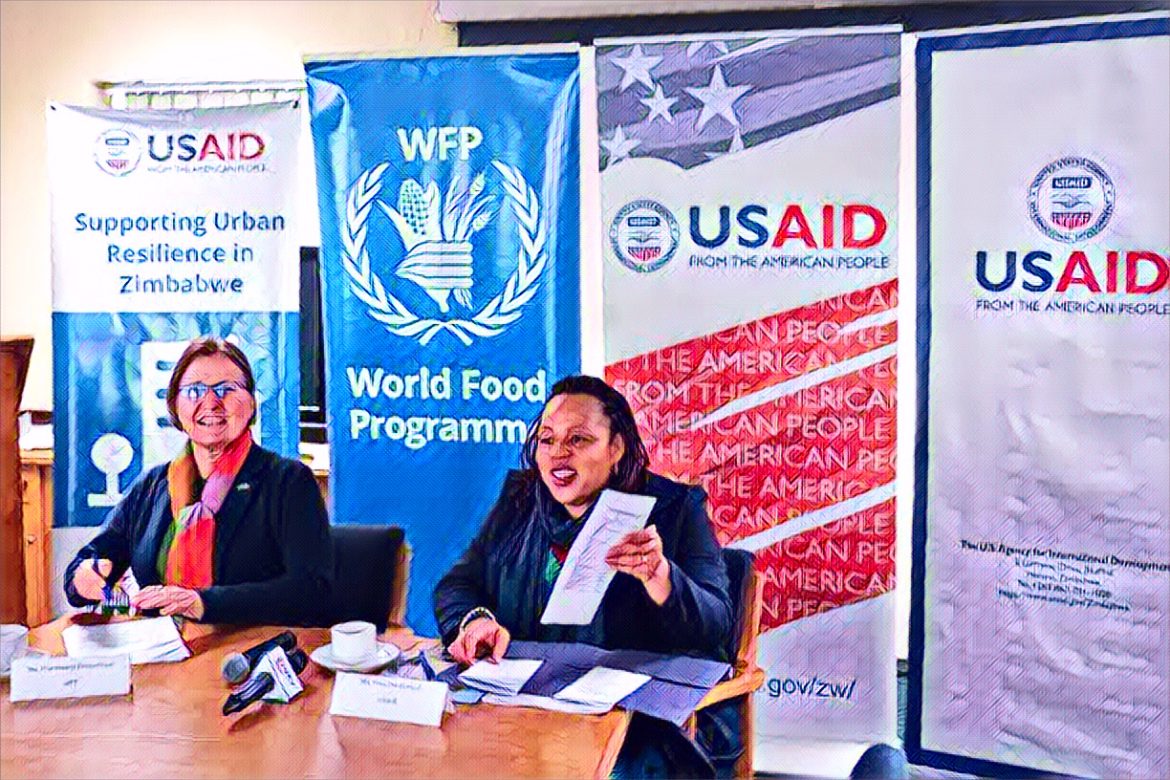Zimbabwe is facing a severe food crisis as millions of people struggle to cope with the effects of a prolonged drought and a collapsing economy. The United Nations estimates that more than 5.5 million people in rural areas and 2.2 million in urban areas are food insecure and in need of humanitarian assistance.
To help alleviate the suffering of the most vulnerable, the United States Agency for International Development (USAID) announced on Thursday a contribution of $11.27 million to the World Food Programme (WFP) in Zimbabwe. The funds will enable WFP to provide critical food assistance to approximately 230,000 people in Mwenezi, Mangwe, Chivi, and Buhera districts during the January to March 2024 lean season.
The USAID Mission Director said: “USAID is committed to continue to strengthen community resilience and accelerate sustainable development, which empowers Zimbabweans to better cope with the stressors such as the drought caused by the El Niño climate pattern.”
El Niño is a natural phenomenon that occurs every few years and causes changes in weather patterns around the world. According to the Zimbabwe Meteorological Services Department, the 2023 to 2024 rainfall season is likely to experience below-normal rainfall and high temperatures, which could lead to low crop production and further increase food insecurity.
The Zimbabwe Vulnerability Assessment Committee (ZimVAC) report, which is based on a survey of rural households, indicates that 26 percent of the rural population will not have enough cereal for consumption and need over 100,000 metric tons of maize grain during the peak period.
The funding from USAID will support WFP’s efforts to complement the Government-led Food Deficit Mitigation Strategy Programme, which aims to assist 2.7 million people in all districts across Zimbabwe. The assistance will include cereals, pulses, and fortified vegetable oil, which will help the beneficiaries meet their nutritional needs.
Francesca Erdelmann, WFP Zimbabwe Representative and Country Director expressed her gratitude to USAID for their significant contribution, which she said “undoubtedly saves lives”
“Our goal is to ensure that everyone in the country has access to nutritious foods and can consume the recommended amounts. The assistance we are acknowledging today is an important contribution to help the most vulnerable people in rural areas to meet their nutritional needs,” she said.
As WFP delivers assistance this lean season and beyond, it will also continue to enhance its monitoring to best serve vulnerable families across the country. Furthermore, WFP will actively engage communities to strengthen their resilience against the anticipated El Niño drought. This involves creating valuable assets such as boreholes, reservoirs, and drip irrigation systems and providing drought-resistant seeds to smallholder farmers.
USAID’s latest contribution to WFP’s food and resilience activities in Zimbabwe brings the total funding from the United States to over $24.3 million in 2023.
The US is one of the largest donors of humanitarian aid to Zimbabwe, which has been under sanctions since 2002 over alleged human rights violations and electoral fraud by the former regime of Robert Mugabe. The current government of President Emmerson Mnangagwa has pledged to implement political and economic reforms to end the country’s isolation and attract foreign investment.
Despite the challenges, Zimbabweans remain hopeful that their country will overcome the crisis and achieve its potential as a prosperous and peaceful nation.
Source: Devdiscourse


